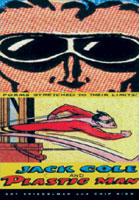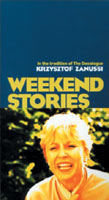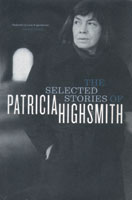SUPER 8
 |  |  |
1. 9-11 INTERNET NEWS: If you’re tired of the Folger’s House stylings of Paula Zahn or the pious bleatings of Bill “I have no ideology” O’Reilly, zap the cable and boot up for incisive alternative news about the 9-11 tragedy. For a wide variety of news links with an anti-Drudge spin, try buzzflash.com. Cockburn, Chomsky and Said pop up on counterpunch.com. Alternet.org is an analysis/activist site, and indymedia.org, a leading globalization news site, is worth checking out as well. For in-depth analysis of the U.S. role in the Middle East, bookmark Foreignpolicy-infocus.org. And finally, for a fascinating account from this past June of the current situation in Afghanistan by famed Iranian filmmaker Mohsen Makhmalbaf, see www.iranian.com/Opinion/2001/June/Afghan/index.html.
2. WHEN. Longing vocals, delicate guitar notes and an artist’s ear for spatial separation — Vincent Gallo’s new CD When (Warp Records) is lovely late-night listening. Best known as an actor (he stars in Claire Denis’s Trouble Every Day, forthcoming from Lot 47), Gallo began his career as an artist and musician, playing in the downtown New York City band Gray with fellow painter Jean-Michel Basquiat. In When, Gallo’s various talents come together in the aural equivalent of a lingering closeup. More “Moonchild” than Relayer, When continues the prog stylings of Gallo’s Buffalo 66 soundtrack even as its hypnotic analog hush contains unlikely echoes of everything from trip-hop to West Coast jazz.
3. SNAPPED. If comic-book artist Jack Cole — creator of the super-elastic superguy Plastic Man -— hadn’t actually lived the strange and tragic life detailed in Art Spielgelman and Chip Kidd’s biography/culture study/graphic tornado, Jack Cole and Plastic Man (Chronicle Books, $19.95), it would have taken a great stretch of imagination to have dreamt it up. Outwardly a mild-mannered family man, Cole began his career laboring anonymously in comic-book sweatshops, drew some of the most unsettling stories in the medium’s morally dubious 1950s heyday, and ended up as one Hugh Hefner’s top Playboy cartoonists. From shimmering Playboy bunny cartoons on glossy stock to vintage comic book pages (including the ultra-lurid E.C. Comics classic, “Murder Morphine and Me!”) reproduced in their entirety on rough newsprint, this book is a stunner. Watch Plastic Man thread himself through panels and pages like a lubricated Steadicam; wince as a pimp sticks a hypo in a screaming blonde’s eyesocket!
4. THE TRIBE. Should artistic movements be fueled by long, intense nights of talk and booze as much as radical fervor? By the lights of The Tribe, (City Lights, $14.96), a series of conversations with Jean-Michel Mension, one of the pack of delinquents drinking and thinking their way across the Paris of 1952–54, the answer is a slurred “oui.” In this post-War, pre-’60s era, when Mension was hanging out with Guy Debord and other young rogues, one could be a hard drinker as well as a methodical thinker. Subtitled “Contributions to the History of the Situationist International and Its Time, Vol. I,” Gerard Berreby and Francesco Milo’s interviews depict youth spent unwisely and well. Volumes of wine, hashish, ether and underage girls were part and parcel the Letterist International’s feisty provocations. Photo-graphed here at Moineau’s, their favored Saint-Germain-des-Prés bistro, they’re as young, wild-haired and smilingly devilish as a pack of Amerindie rockers.
5. THE GOLEM’S MIGHTY SWING. In “The Golem’s Mighty Swing” (Drawn and Quarterly, $12.95), 35-year-old James Sturm sketches in the travails of a 1920s Jewish minor league baseball team, The Stars of David, and a promoter’s scheme to have one of the players don the costume of the mythical creature in the successful 1920 German film, Der Golem. In this graphic novel Sturm does something that’s almost impossible on film: capturing the time and space that is baseball’s atmosphere. Drawing on photographs from the era, as well as Japanese sports comics, Sturm’s work is a gem of concision, portraying a forgone small-town America and capturing aspects of prejudice and bonding with subtle skill.
6. WEEKEND STORIES. Krzysztof Zanussi is a lesser-known Polish director of Kieslowski’s generation, but in the recent issue of his Weekend Stories (Polart/Facets Video, $79.95), the trained physicist works after the style of Kieslowski’s The Decalogue, arraying eight hour-long films about moral issues in contemporary Poland. Zanussi’s allegories reach, with surprising success, for a muted lyricism of behavior. Zanussi realized his audience, the Polish intelligentsia, no longer went to the cinema, so he chose to extend his “cinema of moral concern” to television. He works within limitations in a way that low-budget filmmakers would do well to savor: re-using bits of music, formal elements and underlying themes in a way that wind up resounding rather than repetitive.
7. PATRICIA HIGHSMITH. WW. Norton & Company recently re-issued paperback editions (each $11) of Patricia Highsmith’s classic Strangers on a Train — the inspiration for Hitchcock’s 1951 film — and A Suspension of Mercy, in which a writer descends into the treacherous world of his own fictions. The Selected Stories of Patricia Highsmith (724 pages, $27.95), which features over 60 short-form gems, is the latest edition to a list of some 15 Highsmith titles — including nine novels and six short-story collections — promised by the company. Due out this November: The Blunderer and People Who Knock on the Door. Rush, don’t walk, to your nearest bookseller!
8. ASIAN DVD BOOTLEGS. Bummed that your favorite American indie hasn’t been mastered to DVD? Then head over to Cambodia, Malaysia or Hong Kong — or maybe just check out eBay — to find hilariously bootlegged versions of films by your friends and neighbors. In Cambodia, for instance, you can pick up Jamie Babbitt’s Lions Gate release But I’m a Cheerleader. The title? Bring it On 2.
VOD CALENDAR


 See the VOD Calendar →
See the VOD Calendar →


